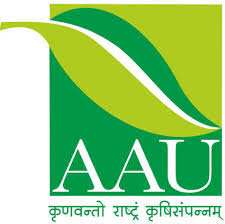The Benefits of Organic Fertilizers
Soil Health
Organic fertilizers improve soil structure, decrease soil erosion, maintain PH of soil, enhance water retention, and foster beneficial microbial activity. A healthy soil ecosystem translates to healthier plants and robust growth.
Nutrient-Rich Produce
Give your plants the nutrition they need without compromising on quality. Organic fertilizers provide a balanced mix of essential nutrients, resulting in nutrient-rich and flavorful crops.
Environmentally Friendly
Reduce your ecological footprint by choosing organic fertilizers. Our products are formulated with natural ingredients, promoting biodiversity and safeguarding ecosystems.
Sustainability in Action
Join the movement towards sustainable agriculture. Organic fertilizers promote responsible farming practices that protect the land for future generations.
Safe for All
Create a safe environment for your family, pets, and wildlife. It's helps to Provide natural enemies to your field. Organic fertilizers eliminate the risk of exposure to harmful synthetic chemicals, making your garden a heaven for all.
WHAT PEOPLE SAY
Our Organic fertilizers are carefully crafted to provide your soil with essential nutrients in a natural and balanced way. Unlike synthetic fertilizers, which may lead to soil degradation over time, our organic formulations enhance Soil fertility, Decrease Soil erosion and promoting long-term sustainability.
Environmental Stewardship
Say goodbye to harmful chemicals and toxins. Organic fertilizers prioritize the health of our planet by avoiding synthetic additives that can leach into groundwater and harm aquatic ecosystems. Choose a sustainable path that not only benefits your garden but also contributes to the overall well-being of our environment.
Healthy Harvests, Happy You
Experience the joy of harvesting fruits, vegetables, and herbs that are not only delicious but also free from harmful residues. Organic cultivation minimizes the presence of synthetic pesticides and chemicals, ensuring that what you put on your plate is as pure and natural as possible.
Educating for a Greener Tomorrow
At Msaf Organics , we believe that knowledge is the key to a more sustainable future. Explore our educational resources to learn about the benefits of organic fertilizers, the science behind sustainable agriculture, and practical tips for cultivating a thriving organic garden.
1. Commitment to Sustainability:
Our commitment to the environment drives every aspect of our operations, ensuring that our products promote healthy ecosystems while maximizing agricultural productivity.
2. Innovation at the Core:
With a focus on pioneering agricultural technology, we continuously develop and refine solutions that address the evolving challenges of modern farming, leading to tangible results and sustainable practices.
3. Quality You Can Trust:
Rest assured, every product from MSAF Organics undergoes rigorous quality control measures, adhering to stringent industry standards to guarantee optimal performance and environmental responsibility.
4. Expert Guidance and Support:
Our team of agricultural experts is here to provide you with personalized guidance and support.Whether you're a seasoned farmer or just starting out, we're here to help you achieve your goals and maximize your yields through tailored solutions and expert advice.
5. A Vision for a Better Future:
Choosing MSAF Organics means embracing a sustainable future. Supporting us fuels eco-friendly agriculture, making the planet healthier for future generations.
News
Budget 2024: Govt raises 16-times allocation for organic fertilizers
After managing to reduce urea subsidy despite high global prices during FY23-24 and stepping up allocation for organic fertilizers by more than 16 times, the focus on nano di-ammonia phosphate (nano-DAP) may eventually help the government to bring down subsidy on phosphatic fertilizers substantially. This is even as the debate over the efficiency of liquid nano fertilizers still continues.. In her Budget speech, Finance Minister Nirmala Sitharaman said: “After the successful adoption of nano-urea, application of nano-DAP on various crops will be expanded in all agro-climatic zones.” She did not explain further. The minister has allocated ₹100 crore for promotion of organic fertilizers during FY25 against ₹6 crore in FY24 (RE). A new scheme for promotion of organic fertilizers providing Market Development Assistance (MDA) and promotion of Research and Development as GOBARdhan initiatives, was introduced in 2023. The PM-PRANAM scheme was also launched last year to grant financial incentive under a formula to states if they reduce usage of chemical fertilizers. New beginning Launching the commercial roll out of nano-DAP of fertiliser co-operative IFFCO in April last year, Union Co-operation Minister Amit Shah had said the introduction of nano variant of fertiliser was a new beginning towards making India self reliant on fertiliser as it would increase farm productivity without impacting the soil health. Apart from IFFCO, Coromandel International and Zuari have got government’s approval to manufacture nano-DAP.
Read MoreUse organic fertilisers to ensure soil does not turn infertile: Chouhan
Union Minister Shivraj Singh Chouhan on Saturday urged farmers to switch to organic fertilisers to save the soil from turning infertile and also for the betterment of human health. The Union minister for agriculture and farmers welfare was interacting virtually with farmers and 'Swayampurna Mitras' (officials assigned to deliver government schemes) of Goa. Chief Minister Pramod Sawant joined the interaction from here. It was aired across panchayats, municipalities, and zonal agricultural offices in the coastal state. "Gradually, we have to switch towards organic farming. The use of chemical fertilisers is affecting the soil. If there is uninterrupted use of chemical fertilisers and pesticides, the soil will turn infertile. It is also bad for human health," Chouhan said while hailing the state government for providing thrust on organic farming by giving various subsidies. The 'Swayampurna (self sufficient) Goa' initiative is an example of how the government can use available resources and encourage officials to explore the maximum potential available, Chouhan said, adding other states must also emulate it. Chouhan said when he was Madhya Pradesh CM, Prime Minister Narendra Modi had spoken about the 'Swayampurna Goa' move and had urged states to adopt it. "PM Modi does not think just about the present but has a vision for the country. He has given everyone a target to work for Viksit Bharat by 2047. The PM presented the roadmap of Viksit Bharat before the Union cabinet in a recent meeting," Chouhan said. "The roadmap for the farmers is clear. We have to double the income of farmers, which can be done only by increasing production," he added.
Read MorePeople Who Trust Us.








